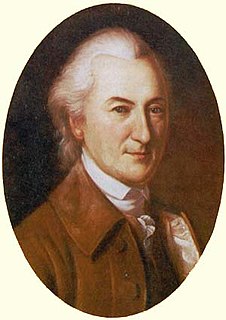A Quote by Jennifer Michael Hecht
We are humanity, Kant says. Humanity needs us because we are it. Kant believes in duty and considers remaining alive a primary human duty. For him one is not permitted to “renounce his personality,” and while he states living as a duty, it also conveys a kind of freedom: we are not burdened with the obligation of judging whether our personality is worth maintaining, whether our life is worth living. Because living it is a duty, we are performing a good moral act just by persevering.
Quote Topics
Act
Alive
Also
Because
Believes
Considers
Duty
Freedom
Good
Good Moral
Him
His
Human
Humanity
Judging
Just
Kant
Kind
Life
Life Is
Life Is Worth Living
Living
Maintaining
Moral
Needs
Obligation
Our
Performing
Permitted
Personality
Primary
Remaining
Renounce
Says
States
Us
Whether
While
Worth
Worth Living
Related Quotes
Kant does not think there is anything wrong with being beneficent from sympathy. He thinks we have a duty to cultivate sympathetic feelings by participating in the situations of others and acquiring an understanding of them. He thinks we also have a duty to make ourselves into the kind of person for whom the recognition that something is our duty would be a sufficient incentive to do it (if no other incentives were available to us). That's what he means by "the duty to act from the motive of duty".
Kant does not think that along with choice of an action we also choose in each case the motive from which we do it. He thinks all is well if I act beneficently, realizing that it is my duty but also having sympathetic feelings for the person I help. But I ought to strive to be the sort of person who would still help even if these feelings were absent. And it is such a case that he presents when the sympathetic friend of humanity finds his sympathetic feelings overclouded by his own sorrows, and still acts beneficently from duty.
We have a duty to our country to participate in the political process. See, if you believe in freedom, you have a duty to exercise your right to vote to begin with. I'm [here] to encourage people to do their duty, to go to the polls. I want all people, no matter what their political party is or whether they even like a political party, to exercise their obligation to vote.
...life is a gift bestowed without anyone asking for it; that the thinking person has a philosophical duty to examine both the nature of life and the conditions it comes with; and that if this person decides to renounce the gift no one asks for, it is the moral and human duty to act on the consequences of that decision.
Kant regards the universalizability test for maxims as focused on a very special sort of situation: one where the agent is tempted to make an exception to a recognized duty out of self-preference. The universalizability test is supposed help the agent to see, in a particular case of moral judgment, that self-preference is not a satisfactory reason for exempting yourself from a duty you recognize. Kant thinks, as a matter of human nature, that this situation arises often enough and that we need a canon of judgment to guard against it.
We must remember our duty to Nature before it is too late. That duty is constant. It is never completed. It lives on as we breathe. It endures as we eat and sleep, work and rest, as we are born and as we pass away. The duty to Nature will remain long after our own endeavors have brought peace to the Middle East. It will weigh on our shoulders for as long as we wish to dwell on a living and thriving planet, and hand it on to our children and theirs.
Our first duty to liberty is to keep our own. But it is also our duty - as Europeans - to keep alive in the Eastern as well as the Western half of our continent those ideas of human dignity which Europe gave to the world. Let us therefore resolve to keep the lamps of freedom burning bright so that all who look to the West from the shadows of the East need not doubt that we remain true to those human and spiritual values that lie at the heart of European civilization.
We must fight against the spirit of unconscious cruelty with which we treat the animals. Animals suffer as much as we do. True humanity does not allow us to impose such sufferings on them. It is our duty to make the whole world recognize it. Until we extend our circle of compassion to all living things, humanity will not find peace.
Now the good of political life is a great political good. It is not a secular good specified by a comprehensive doctrine like those of Kant or Mill. You could characterize this political good as the good of free and equal citizens recognizing the duty of civility to one another: the duty to give citizens public reasons for one's political actions.
































